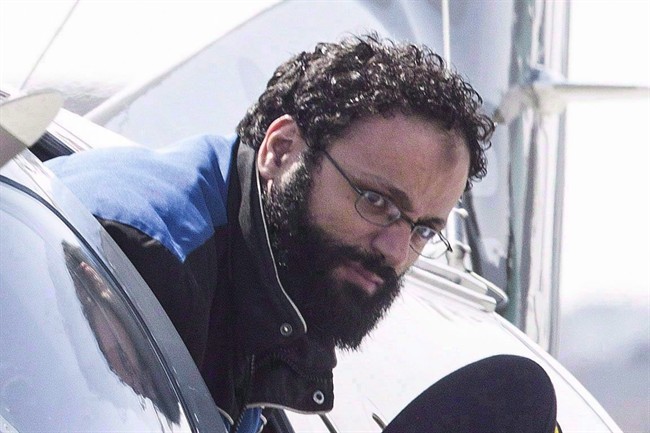TORONTO – A man found guilty of plotting to derail a passenger train between Canada and the U.S. plans to appeal his conviction at Ontario’s highest court.

Chiheb Esseghaier, a deeply religious Muslim, argues he ought to have been judged by the rules of the Qur’an.
The Tunisian national has filed an inmate notice of appeal with the Ontario Court of Appeal in which he sets out the primary reason his conviction should be quashed.
The notice of appeal says the trial judge erred in refusing to allow the trial to be conducted pursuant to the holy Qur’an instead of the Criminal Code.
WATCH: Chiheb Esseghaier and Raed Jaser get life in prison for VIA Rail terror plot
Esseghaier and his co-accused, Raed Jaser, were found guilty last March on a total of eight terror-related charges between them.
They were sentenced to life in prison in late September, with no chance of parole until 2023. Jaser is also appealing his conviction.
When handing down their sentence, Toronto Justice Michael Code found that both men had not renounced their extremist beliefs, had not accepted responsibility for their offences and presented questionable prospects for rehabilitation.
Esseghaier, who appeared unruffled by both the verdict and the sentence in his trial, had demanded throughout his legal process to be judged by the holy Islamic book.
READ MORE: ‘These are lies!’ Spitting outburst interrupts court’s debate over terror suspect’s mental state
He refused a lawyer and represented himself throughout his trial, often went on rambling rants in the courtroom and even prayed in the prisoner’s dock on occasion.
His mental state became an issue during the sentencing phase of the trial after two psychiatric assessments found he was likely schizophrenic — findings he vigorously disagreed with — although one of the psychiatrists who assessed him found he was still fit to be sentenced.
A court-appointed lawyer ordered to assist Esseghaier asked Code to postpone sentencing until it could be determined if Esseghaier could be hospitalized and treated, but Code refused, saying there was “no causal link” between Esseghaier’s mental state during sentencing and his behaviour at the time of the offences.
WATCH: Esseghaier’s former neighbours talk
The same court-appointed lawyer helped Esseghaier complete his notice of appeal, and noted for the appeal court that the man is “severely mentally ill.”
During Esseghaier and Jaser’s trial, a jury heard that an undercover FBI agent gained the men’s trust and surreptitiously recorded their conversations, which made up the bulk of the evidence in the case.
The two were recorded speaking about terror plots they would conduct in retaliation for Canada’s military actions in Muslim countries, including the derailment of a Via Rail train travelling between New York and Toronto.



Comments